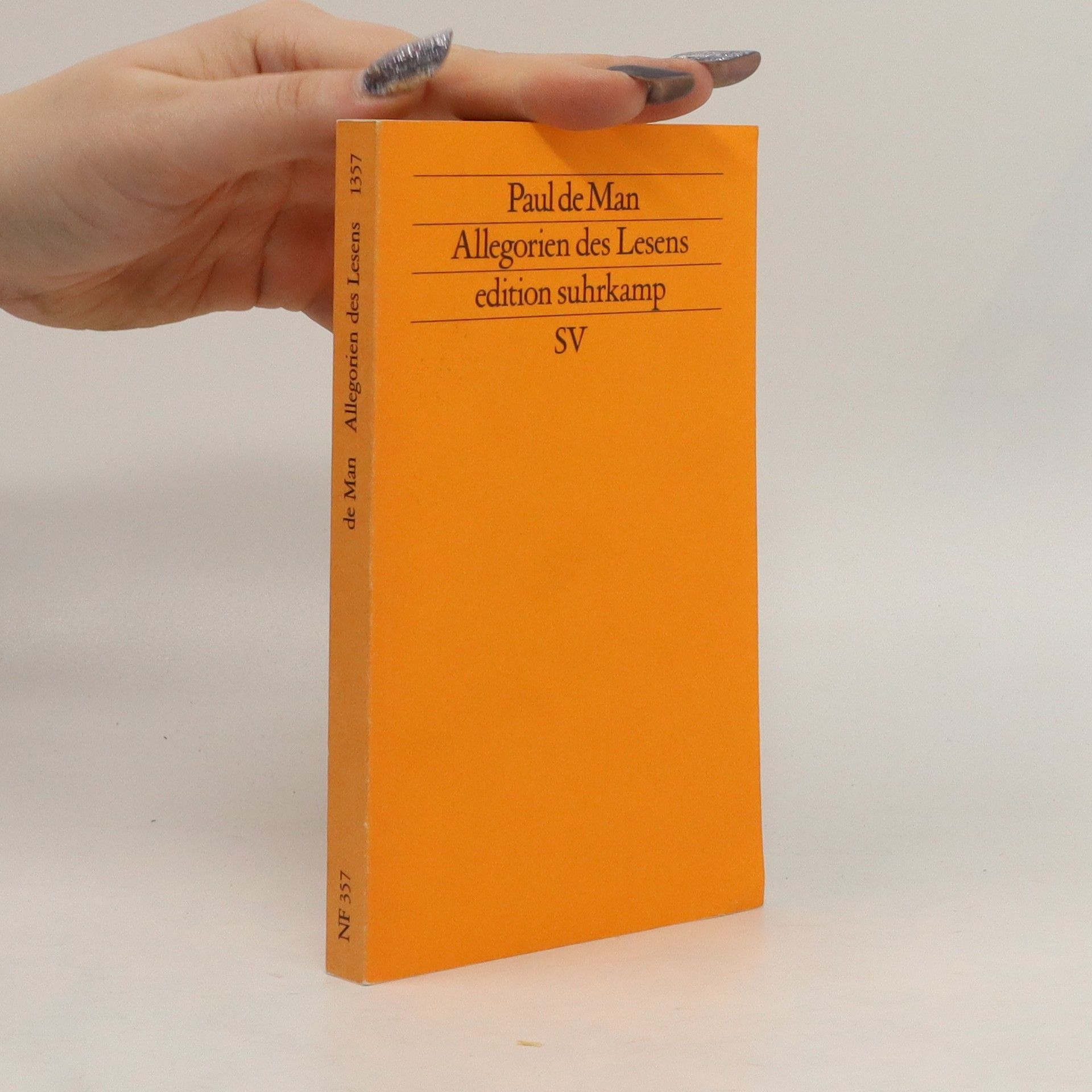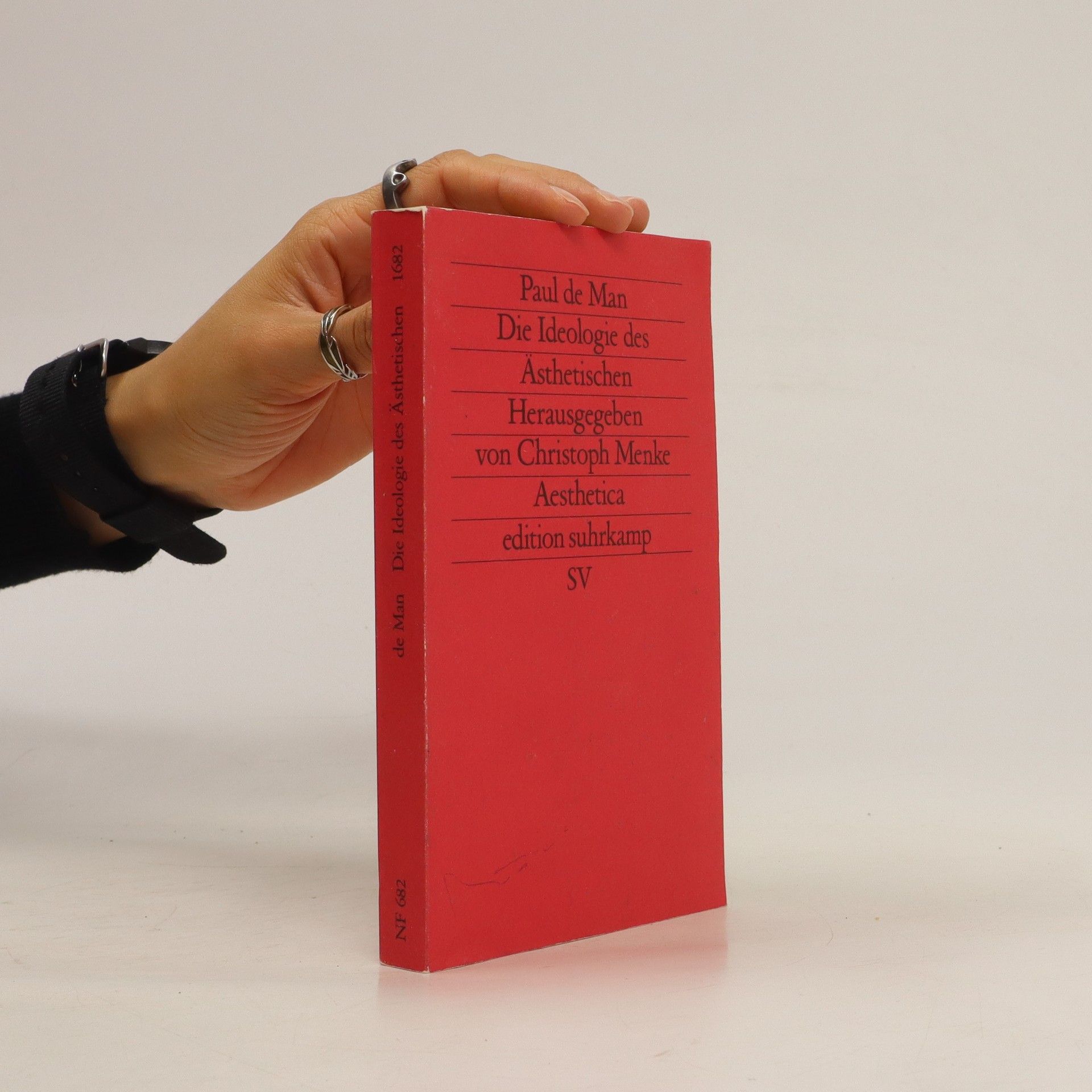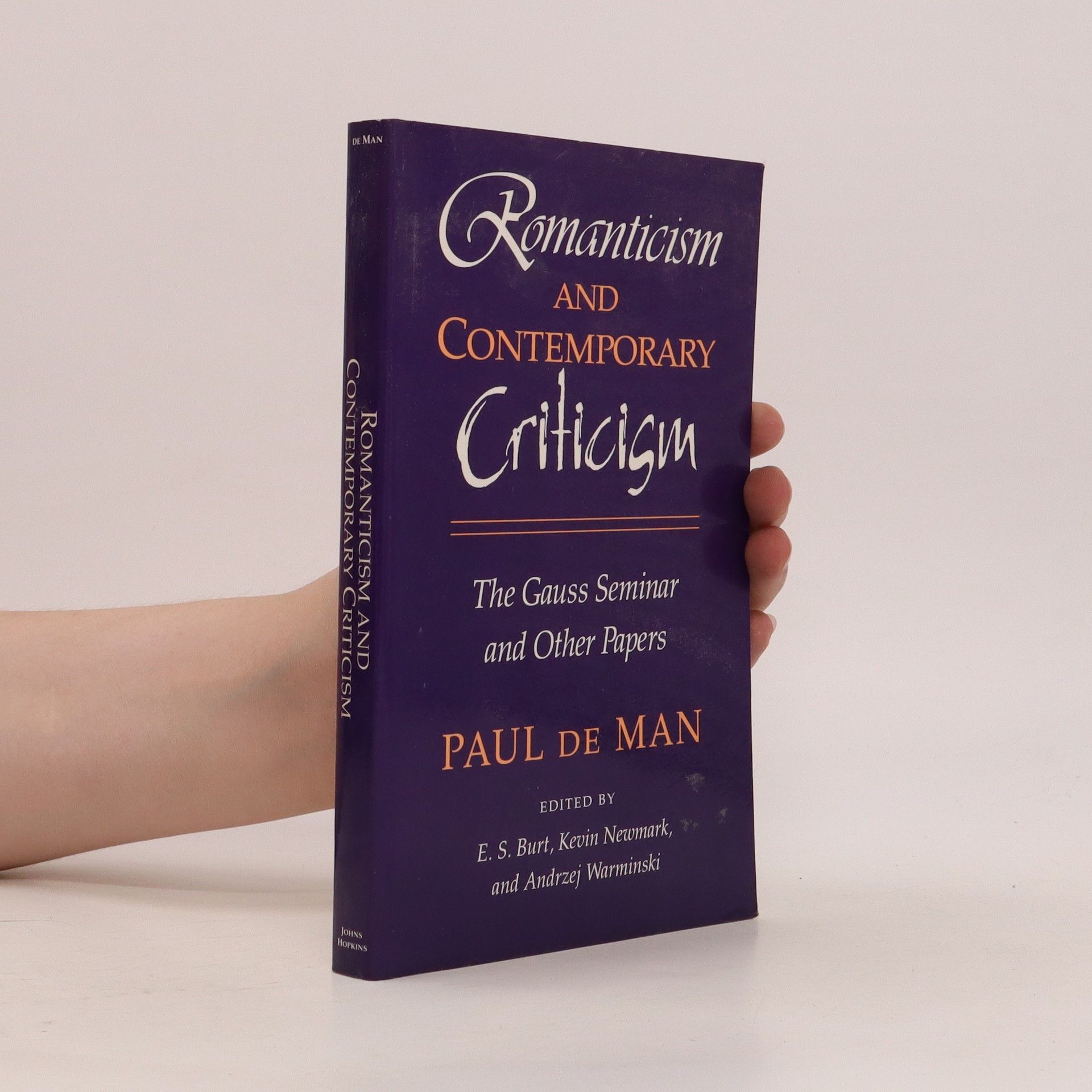Romanticism and Contemporary Criticism
- 224pages
- 8 heures de lecture
This volume assembles for the first time material written by Paul de Man between 1954 and 1981, including his previously unpublished Gauss Seminar lectures delivered at Princeton in 1967, three papers on romantic and postromantic issues, a commissioned essay on Roland Barthes, and two substantial responses to papers by Frank Kermode and Murray Krieger. Romanticism and Contemporary Criticism represents de Man's reflections on some of the major texts of English, German, and French Romanticism and their reception in twentieth-century literary criticism and theory. The Gauss Seminar lectures in particular convey de Man's consideration of Romanticism as a distinct form of historical consciousness, and illuminate his conviction that this romantic historical consciousness had been a powerful influence on our own development of a historical identity. De Man had planned to use the Gauss lectures as a basis for a major historical study of Romanticism, but the volume was never completed and de Man eventually abandoned the project. Drawn from four decades of de Man's career, these essays reflect the transition in the critic's work from the thematics and vocabulary of "consciousness" and "temporality" characteristic of his work in the 1960s, to the language-oriented concerns and terminology of his later writings.



